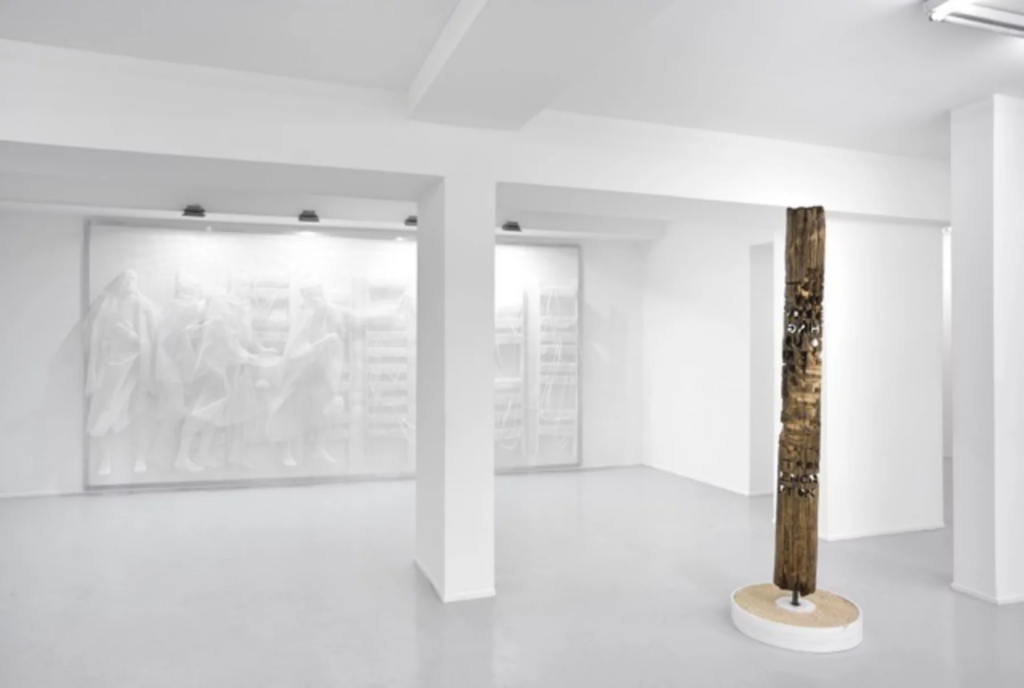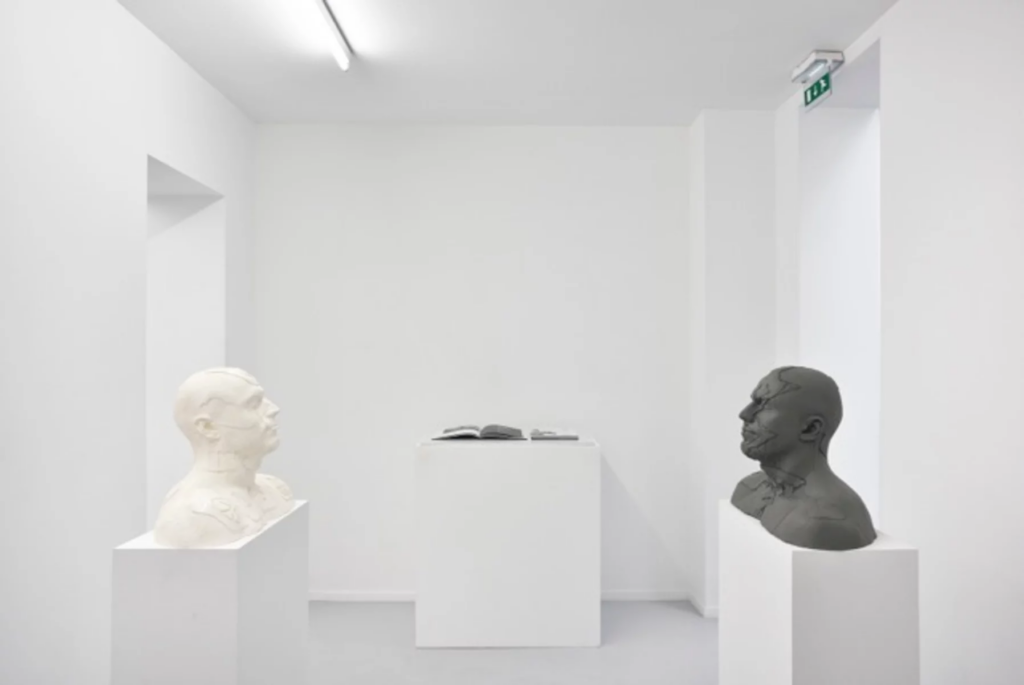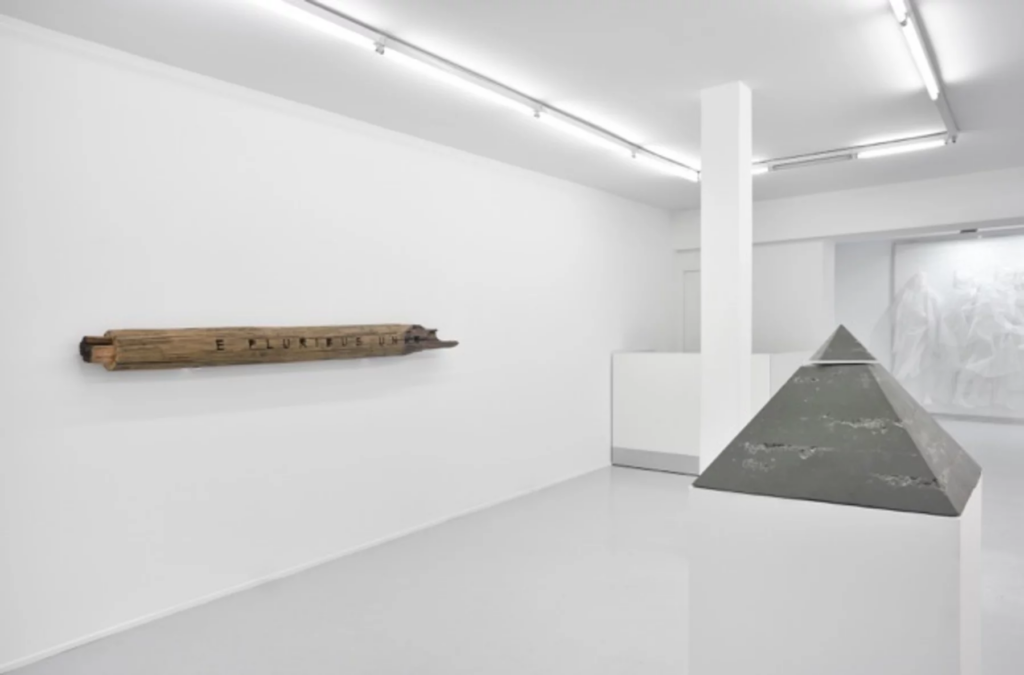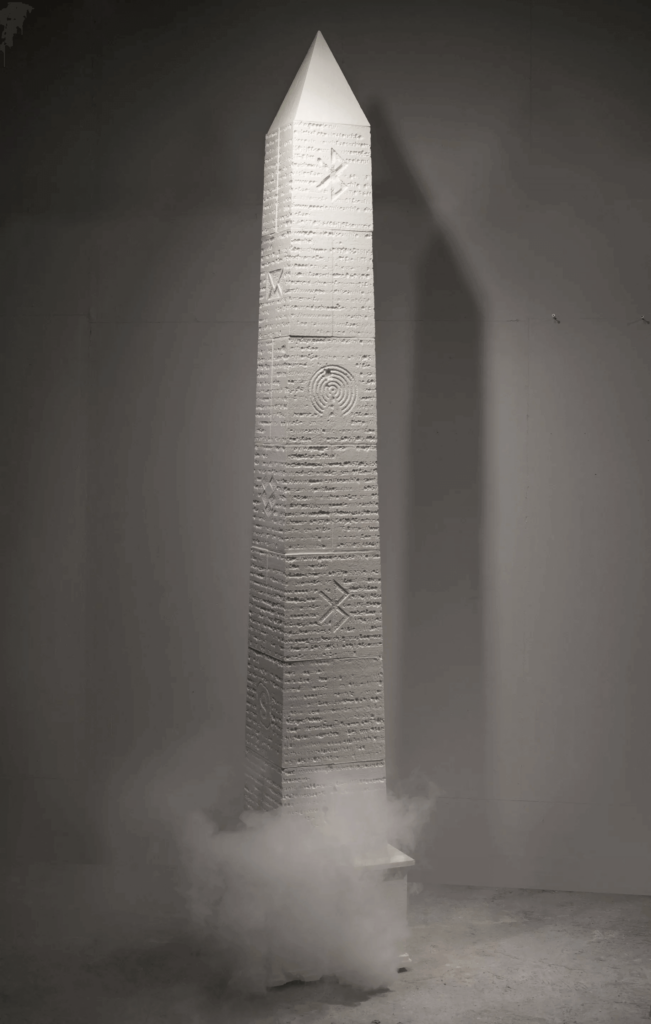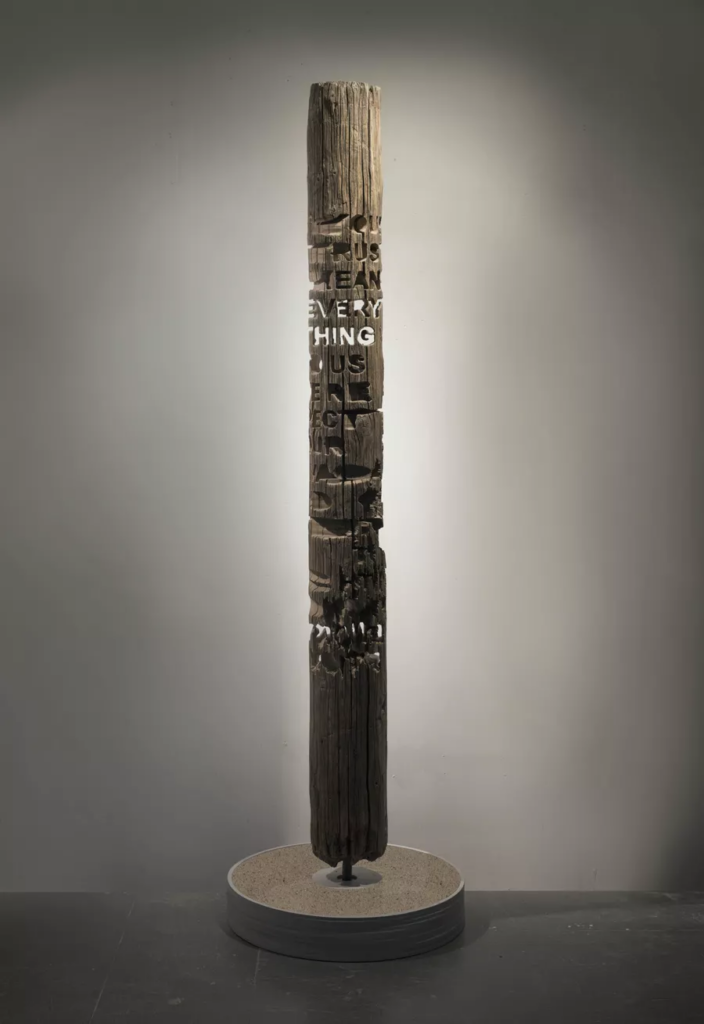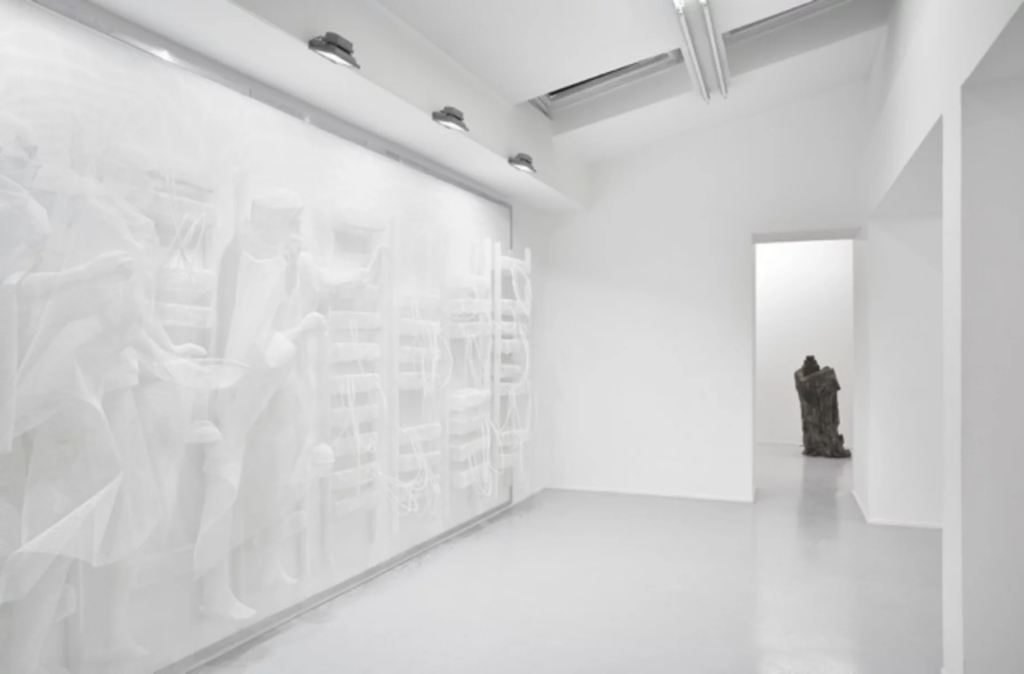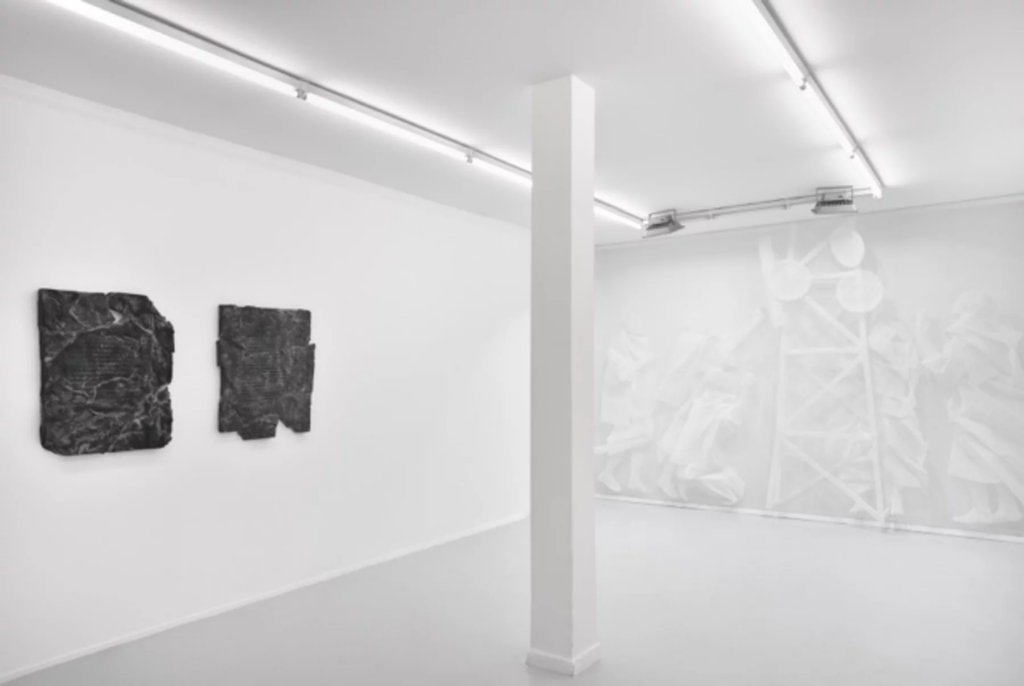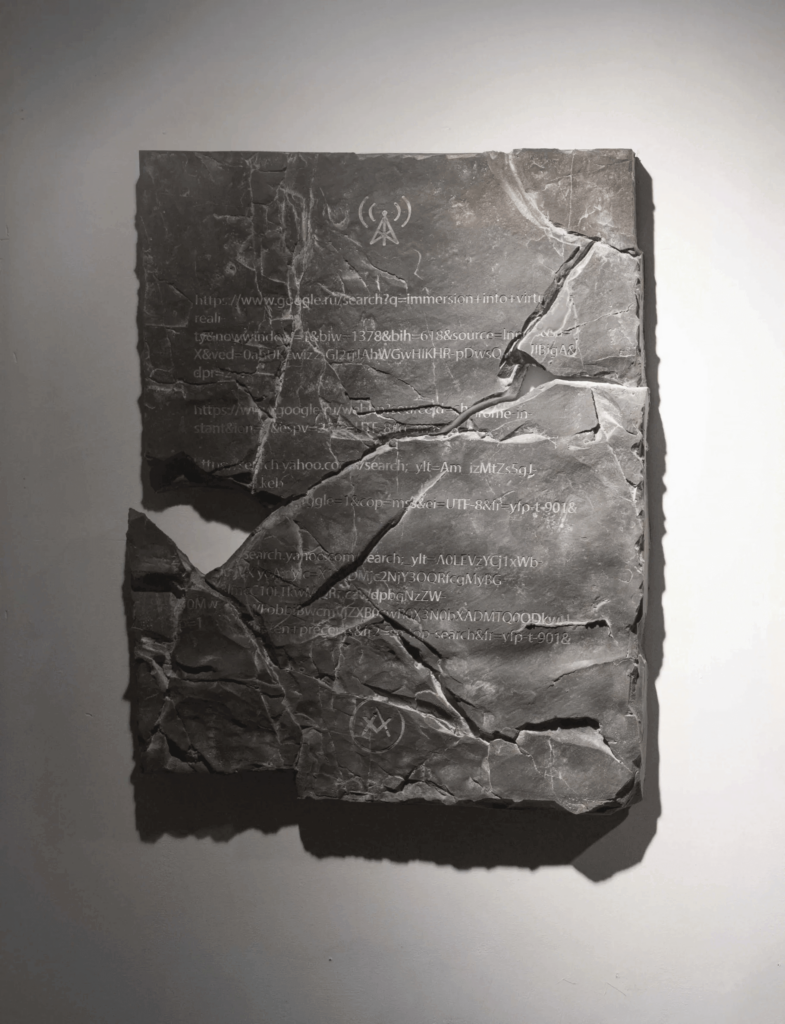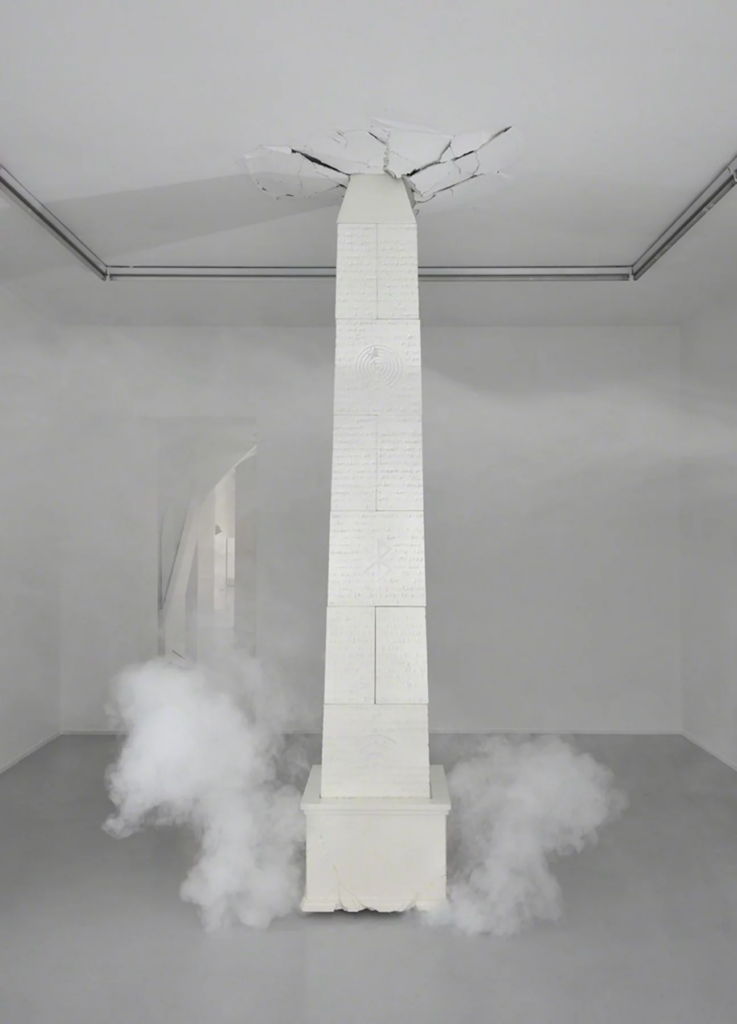Suzanne Tarasieve, 7, rue Pastourelle, Paris
February 27th, 2016—April 3rd, 2016
Created in 2008 by Andrey Blokhin (b.1987) and Georgy Kuznetsov (b.1985), Recycle Group uses recycled materials from the industrial era to explore what will become our contemporary culture.
“Novus ordo seclorum”, the title of their second solo show at Gallery Suzanne Tarasiève quotes a motto which appeared on the Great Seal of the United States in 1782 and was printed on the back of one-dollar banknotes since 1935. Used with Masonic geometric designs and translated as “New World Order”, it celebrates the beginning of a new American era and produced numerous allegations of conspiracy theories.
With Novus ordo seclorum, Recycle Group replays this subject, transferring all the secret meanings to the beginning of an era of virtual reality and those who stand behind it.
Rendered as remains, their works take on the status of archaeological pieces, fixed in time and bearing an irrevocable message: the post-Internet generation has entered a secular history, governed by ever-present high-tech companies which dominate our thoughts and history through digital means.
With their ‘retro-futuristic’ aesthetics, Recycle Group breathes new life into Orwell’s thinking and contemplates the meaning of a civilisation in which digital power has replaced traditional authority structures, whether religious or secular. We are thus confronted with a ‘retro-anticipatory’ vision i (term used by critique Arnaud Pierre to describe a future which is already obsolete). This world in the future perfect is revealed before our eyes through symbolic and narrative artworks, characterised by the aesthetics of past generations: scripts, obelisks and ancient pyramids as well as Renaissance bas-reliefs, etc.
Visitors wander in a post-apocalyptic museum while wondering about the future of their species. Who will own our collective memory? How will it be preserved and on what principles? Will we need a spiritual guide? As a response, Recycle Group refers to the actors that play a primary economic role in the Third Industrial Revolution ii: Google, Facebook, Bluetooth, Dropbox, etc.
However, with Novus ordo seclorum, Recycle Group delivers a darker analysis than that of Jeremy Rifkins, who popularised the idea of a third revolution. Indeed, the two artists point to an enslaved society which is losing its spiritual values. In Consecration of the servers (2016), for instance, priests are blessing rows of servers, while in Tower Raising (2015), faithful followers climb a ladder with their peripheral devices, in a quest for a Wi-Fi connection.
And it is also by combining media and technology that Recycle Group takes a critical and ambivalent look at our heritage and contemporary cultural practices. Indeed, by selecting recycled industrial materials such as polyurethane rubber and thermoformed plastic, their work perpetuates our present while at the same time suggesting that the trajectory of our history is cyclical.
Photos by Rebecca Fanuele
Publications: Artsy. Recycle Group Sees the Present from the Future in a New Paris Show
